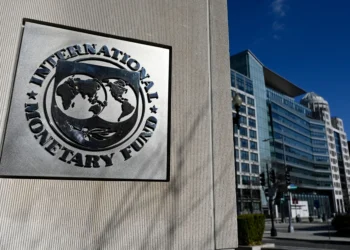CS Kipchumba Murkomen ignited controversy by claiming civilians offer bribes to police, who may accept them and seek divine forgiveness, during a public address in Nairobi. The statement, defending police conduct amid widespread corruption allegations, has drawn sharp criticism for shifting blame from law enforcement to citizens.
Murkomen’s remarks have fueled online searches for “Murkomen civilians offer bribes” and “Kenya police corruption 2025,” amplifying public outrage on X over perceived government inaction on graft.
Murkomen argued that civilians initiate bribery to evade penalties, such as traffic violations, and police, faced with personal financial struggles, may accept while seeking spiritual absolution.
“Civilians are the ones who offer bribes to the police. The officer might then choose to accept it and ask God for forgiveness,” he stated.
The comments come amid heightened scrutiny of police conduct describing a traffic officer taking a bribe from a helmetless rider, highlighting systemic issues.
The Ethics and Anti-Corruption Commission (EACC), led by Bishop David Oginde, has faced criticism for failing to curb such practices, with Oginde himself noting the legal framework protects the corrupt.
Public reaction has been fierce slamming Murkomen for trivializing corruption, accusing him of deflecting from his ministry’s oversight failures.
Critics, including Busia Senator Okiya Omtatah, argue the statement undermines efforts to reform the National Police Service, especially after Murkomen’s earlier call to fire public officers criticizing the government.
The EACC reported recovering KSh 4.6 billion in corruptly acquired assets in 2024, but high-profile cases like the Eurobond scandal remain unresolved, fueling distrust.
Civilians offering bribes, as Murkomen claims, reflects a deeper culture of impunity on X alleging police extortion is normalized. The remarks follow a pattern of controversial statements from Murkomen, including his July 2025 claim that police brutality requires court proof, drawing accusations of shielding officers.
The Kenya National Union of Teachers (KNUT) and civil society groups like Operation Linda Jamii have condemned the narrative, arguing it dismisses systemic corruption within the police force.
A 2023 Transparency International report ranked Kenya’s police among the most corrupt institutions, with 70% of citizens reporting bribe demands, contradicting Murkomen’s framing.
Social media campaigns have gained traction, with searches for “Kenya civilians bribe police” spiking as citizens demand accountability.
Murkomen’s defense of police accepting bribes has reignited calls for reforms, with activists urging the EACC to investigate systemic graft rather than blaming civilians.
The government’s push for loyalty, seen in Murkomen’s earlier threats to sack dissenting officers, complicates efforts to address corruption. The controversy shows Kenya’s struggle with governance, as public trust erodes amid economic challenges and rising debt.
As Murkomen’s civilians offer bribes claim sparks backlash, the government faces pressure to address police corruption head-on. The EACC’s limited success in high-profile cases fuels skepticism, with X users demanding stricter enforcement.
Reforms to rebuild trust in law enforcement are urgently needed, as the public rejects narratives excusing graft.The civilians offer bribes narrative from Murkomen has deepened public frustration, with many seeing it as a deflection from systemic failures.
Activists call for independent probes into police conduct, while citizens on X amplify demands for transparency. The controversy threatens to overshadow Ruto’s administration as elections near.
Murkomen’s civilians offer bribes statement highlights a disconnect between government rhetoric and public reality. With police corruption a longstanding issue, his remarks risk alienating citizens seeking justice.
Searches for “Murkomen police bribe controversy” reflect growing calls for accountability and reform. In conclusion, Kipchumba Murkomen’s claim that civilians offer bribes to police, who then seek forgiveness, has intensified Kenya’s corruption debate.
The civilians offer bribes narrative, criticized as victim-blaming, underscores the need for systemic police reforms. As people looking for “Kenya police corruption updates 2025” surge, public demand for transparency grows, urging the government to address graft decisively to restore faith in law enforcement.















